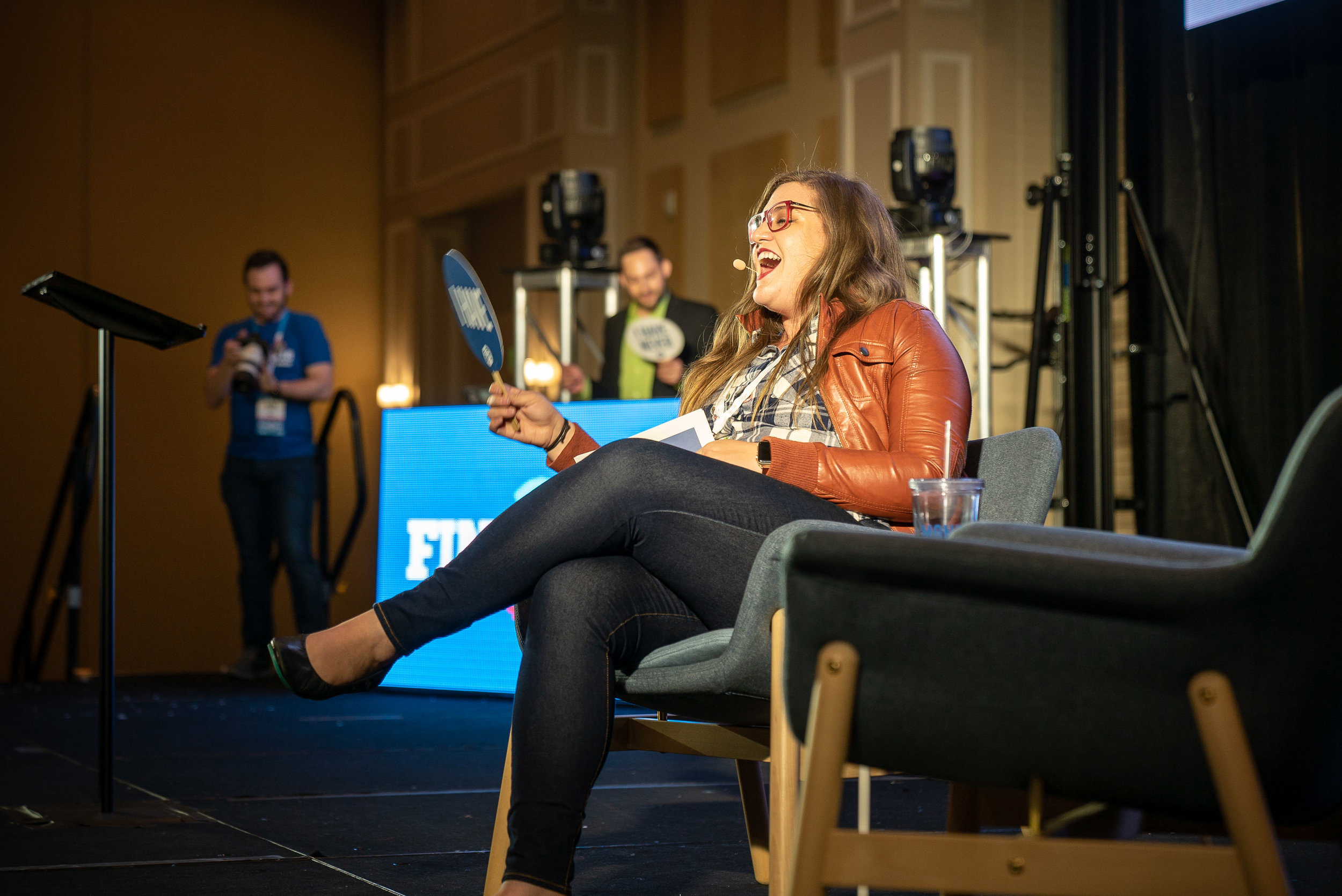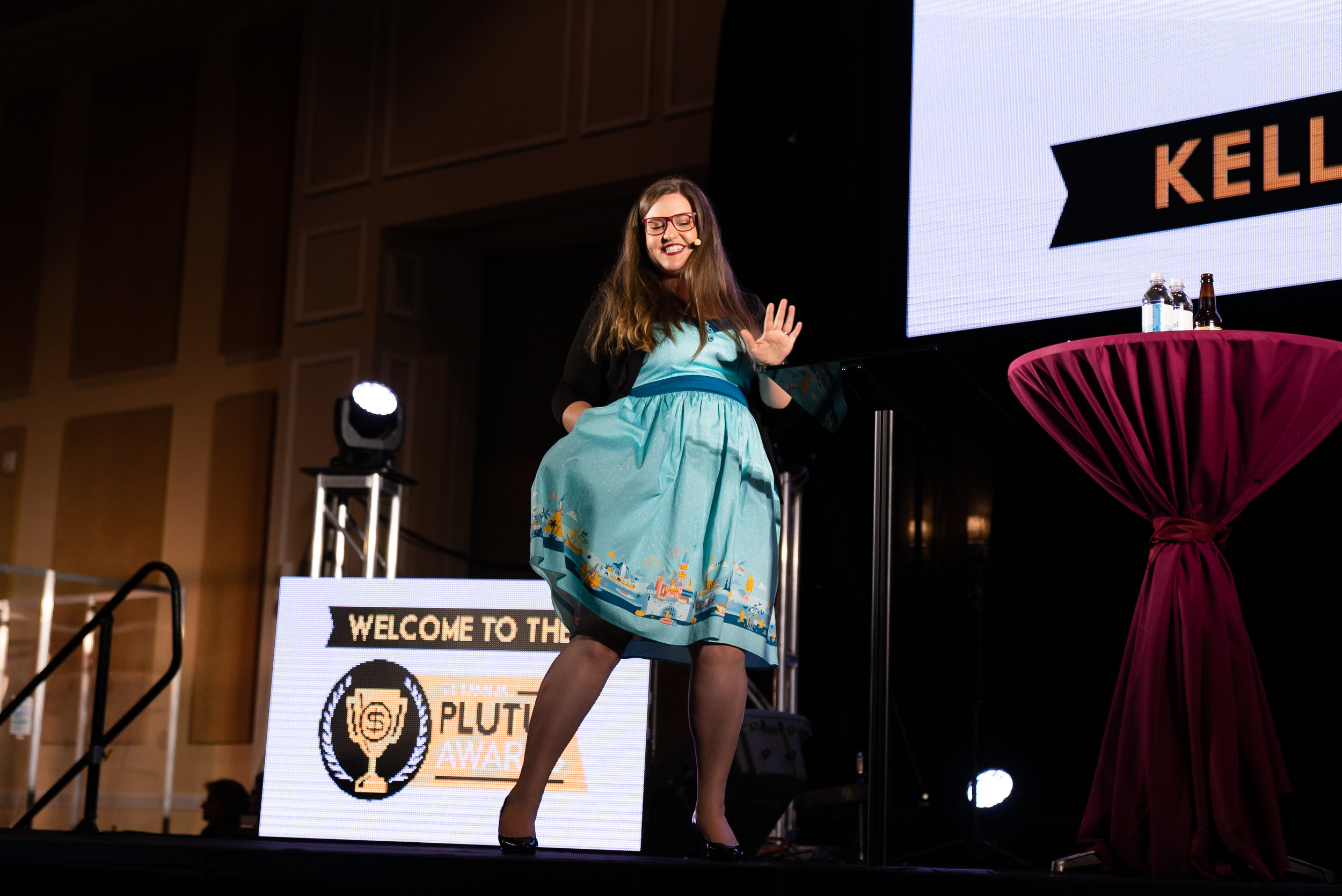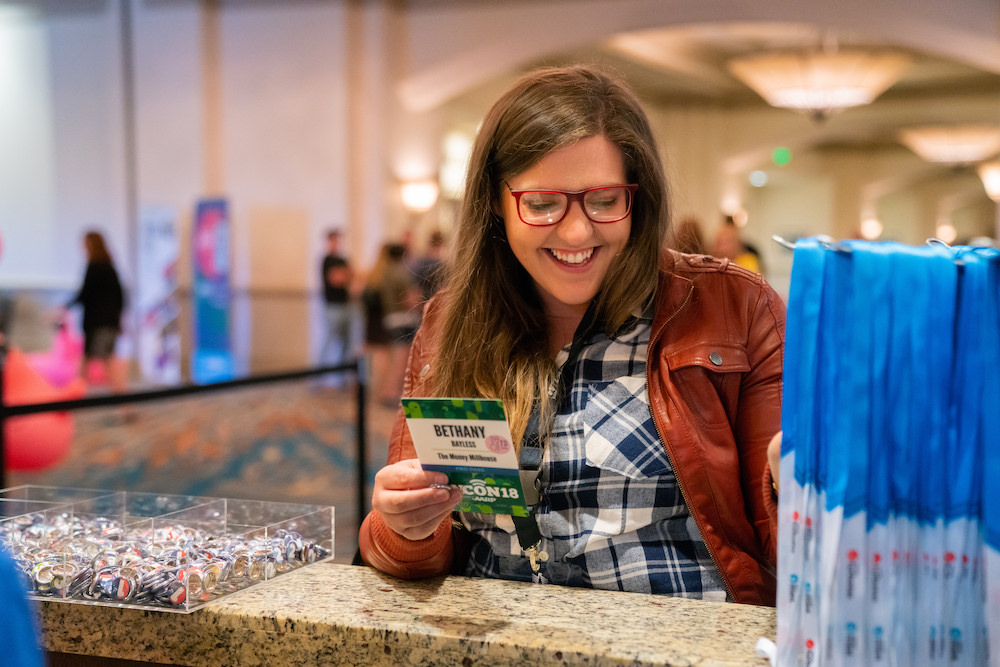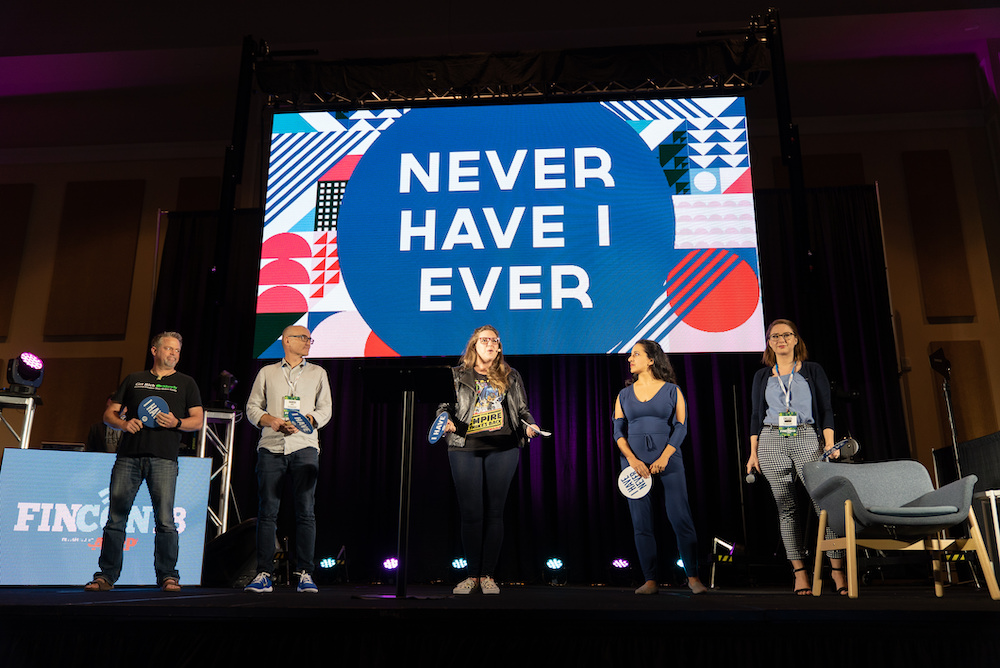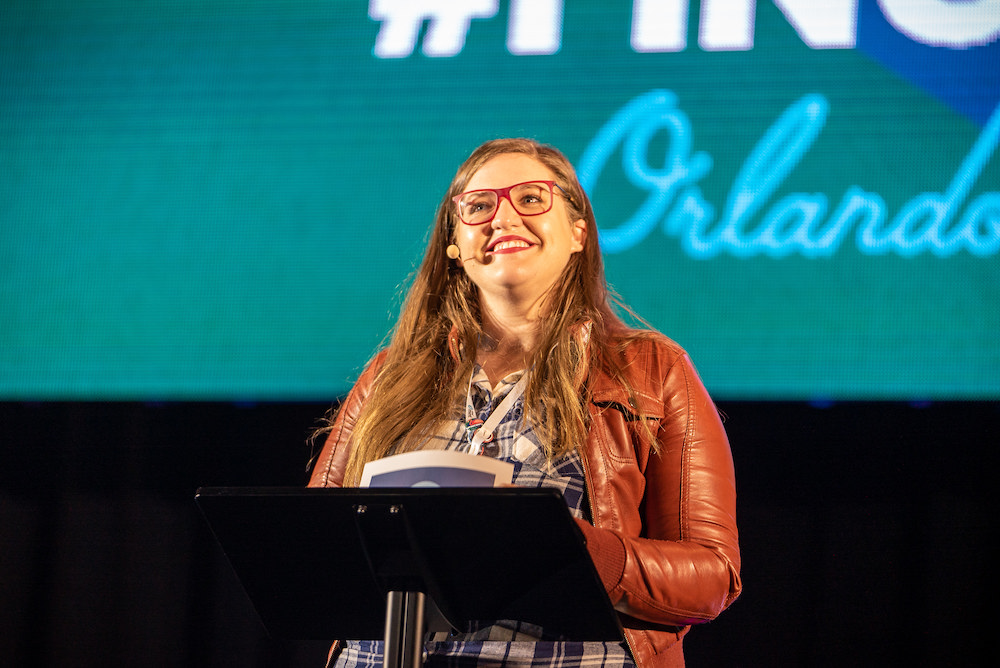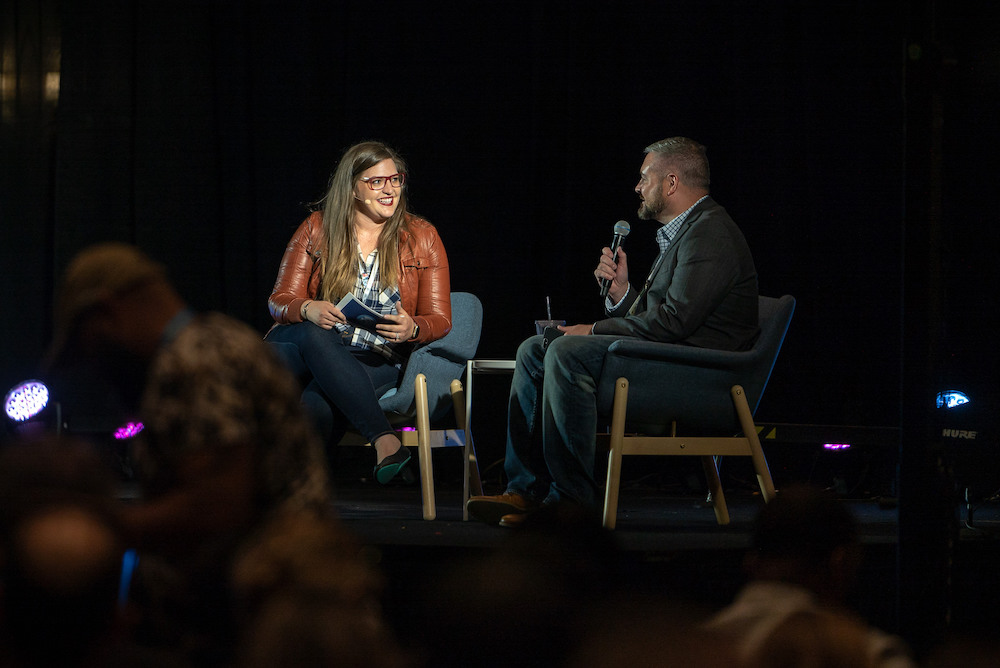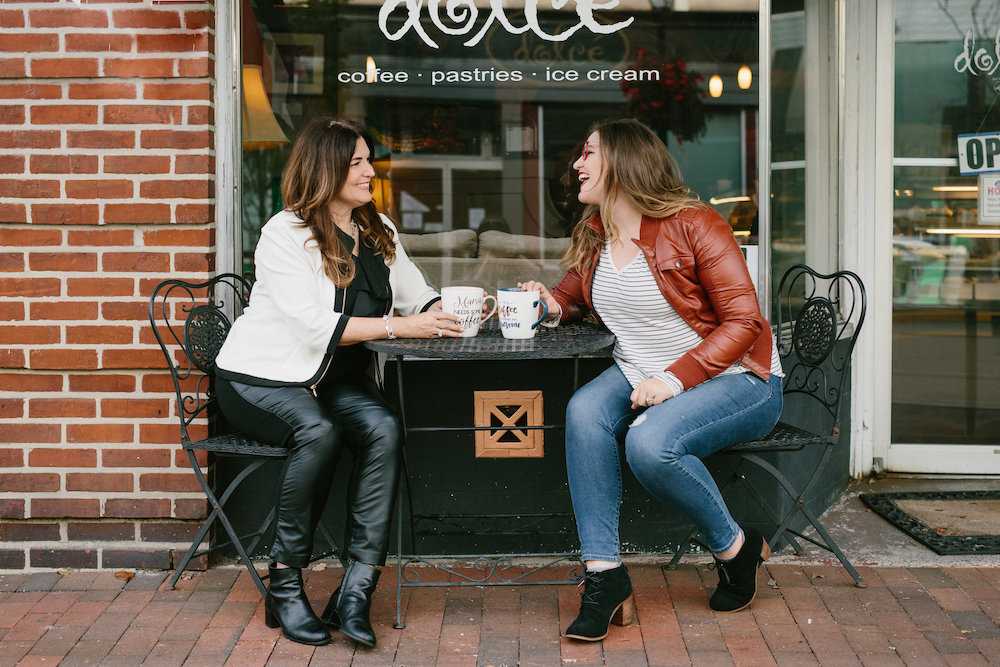Bethany's money story
Bethany Bayless:
When I graduated high school, I went off to college and as a grownup, I just turned 18, and I went to a college that was very small, and it was in a town of six other colleges. We were lots and lots of college students.
Bobbi Rebell:
What town?
Bethany Bayless:
It was Spokane, Washington. In Spokane, there's Gonzaga University, Eastern Washington, all these big universities. There were not a lot of jobs for college students there. It was very very saturated. I was very adamant that I wanted to pay my own rent.
Bobbi Rebell:
You are, by the way, one of five children.
Bethany Bayless:
That's correct. I am the only girl also, I just might add. I didn't want to ask my parents for money because I'm an adult, and that's what adults do is you make your own money. You pay your own rent and utilities, and food, and all of those things. What I did find was that I could go to a plasma bank and donate my blood plasma twice a week. That's exactly what I did. I made $240, and my rent was $240, exactly.
Bobbi Rebell:
Oh my god. Talk a using your god-given resources, Bethany.
Bethany Bayless:
Exactly. I also think, isn't the house rent supposed to be 25% of your income? It was about 100, and so definitely a lesson learned there. I had to do some other little things here and there. This was before side hustle nation. This was before Uber, before Insta Cart, or something else that I could do to earn money. This was the side hustle app of the age, if you will.
Bethany Bayless:
I just learned very very quickly how much money was worth, and even a quarter was the world to me. It was a chunk right there. It was a great experience because I learned to be frugal. I learned to cut back, and I learned to know exactly what I needed. It was a time that I had zero once.
Bobbi Rebell:
By the way, I used to give blood plasma a lot. My mother was sick at a point, and that was something that I was a regular there. One thing that I did learn was that they also feed you there, Bethany.
Bethany Bayless:
Yes. Cool.
Bobbi Rebell:
In addition to the money you could get meals, right?
Bethany Bayless:
Yeah. Basically the way the plasma works for people who are not familiar with this process, we will be talking about blood. Just give that disclaimer very quickly. What they do is they hook you up to a machine. They take out a certain amount.
Bobbi Rebell:
It takes a while.
Bethany Bayless:
Yes.
Bobbi Rebell:
It's a process. This isn't just donating blood. This is a different kind of thing.
Bethany Bayless:
Totally different. Because what they do is they put it in a ... It is a word for it. They put it in a machine where it separates it. They spin it really really fast, and it separates the platelets with the white blood cells, with the red blood cells and your hemoglobin, or whatever. Then they give you back your red blood cells.
Bobbi Rebell:
It takes about an hour sometimes. It depends on your blood pressure, believe it or not. Because I had low blood pressure, and sometimes I would not even qualify because you have to be at a certain level, which makes it a very special thing. People really should donate if you do qualify. It's an important thing to do, I should say. You are there for quite a while.
Bethany Bayless:
It is. I would be there sometimes ... Because you had to go in the waiting room first. Right?
Bobbi Rebell:
Right.
Bethany Bayless:
You have to wait-
Bobbi Rebell:
They set it up for you.
Bethany Bayless:
You have to go through this process. It was a chunk of time, but it was exactly what I needed. I went twice a week. I became friends with Rick, who was the guy who ever single week I would go to him. We became friends. He even had the bedside manner of House, very dry, sarcastic, hated the world, but he called me Sunshine. It was a great experience for me to really do it on my own, to do it myself. I thought, why not. It was the epitome of my desperation pretty much.
Bobbi Rebell:
Also, it is a giving thing to do, and I think it's wonderful that you did that, because even though that wasn't your primary motivation at the time, and I think it's important that people understand that, and that if they are eligible and can do that, it is great to donate plasma.
Bethany Bayless:
Absolutely. Also, I was a universal donor. My blood type is the rarest blood type. I'm AB negative, for anyone who wanted to know. We're finding out so much about each other in this conversation.
Bobbi Rebell:
So much.
Bethany Bayless:
I'm AB negative. It is the universal plasma donor, so anyone could take my plasma.
Bobbi Rebell:
That's wonderful. You didn't mention, what was your favorite snack when you were done? Because they did feed you, so you got food and money.
Bethany Bayless:
Yes, food and money, and I really loved the little cookies. They have little chocolate chip cookies.
Bobbi Rebell:
Yum. Do they have orange juice too?
Bethany Bayless:
Yes, and apple juice, I believe.
Bethany’s money lesson
Bethany Bayless:
The lesson is to do whatever it takes to get by, and to be a financial grownup.
Bobbi Rebell:
Within what is legal and what is reasonable. We need to qualify that, Bethany-
Bethany Bayless:
Absolutely. Do anything that was legal. Should I say that again, Bobbi?
Bobbi Rebell:
Well, I don't know that people should, for example, donate a kidney, that kind of thing. I think that things like plasma, and things like that, are good, but not actual body parts.
Bethany Bayless:
A kidney or another controversial-
Bobbi Rebell:
We want to be clear.
Bethany Bayless:
... another controversial is donating things like eggs.
Bobbi Rebell:
Yes.
Bethany Bayless:
That could have set me up for the entire year, but interesting.
Bobbi Rebell:
It's a personal decision. Just be thoughtful about what body parts and things that you give from yourself.






